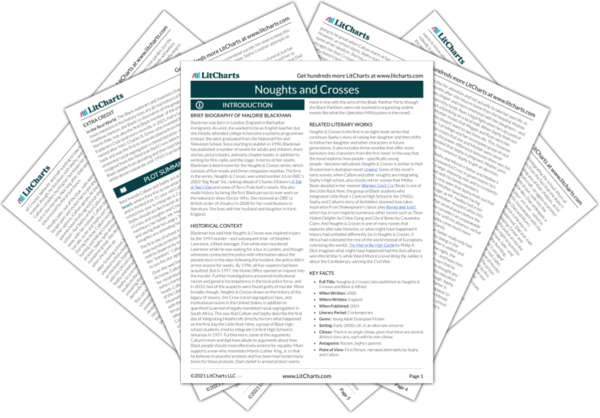AI ToolsNew
Tools to make learning and teaching easier
|
Previous
Chapter 3
|
Noughts and Crosses: Chapter 4 Summary & Analysis |
Next
Chapter 5
|


Upgrade to unlock the analysis and theme tracking for all of Noughts and CrossesNoughts and Crosses!
Get LitCharts A+